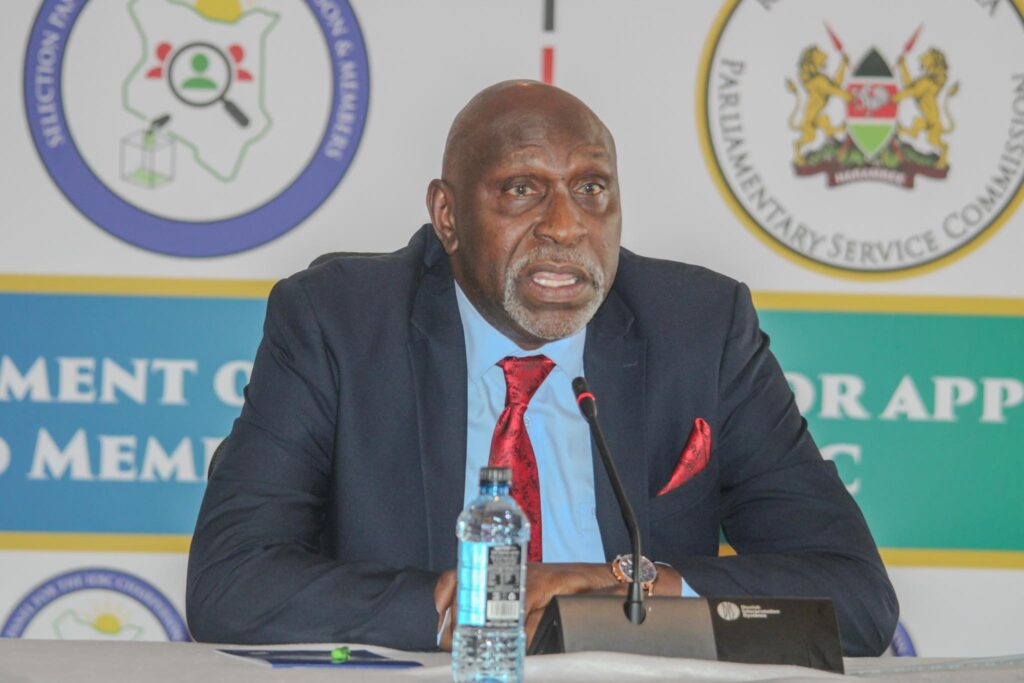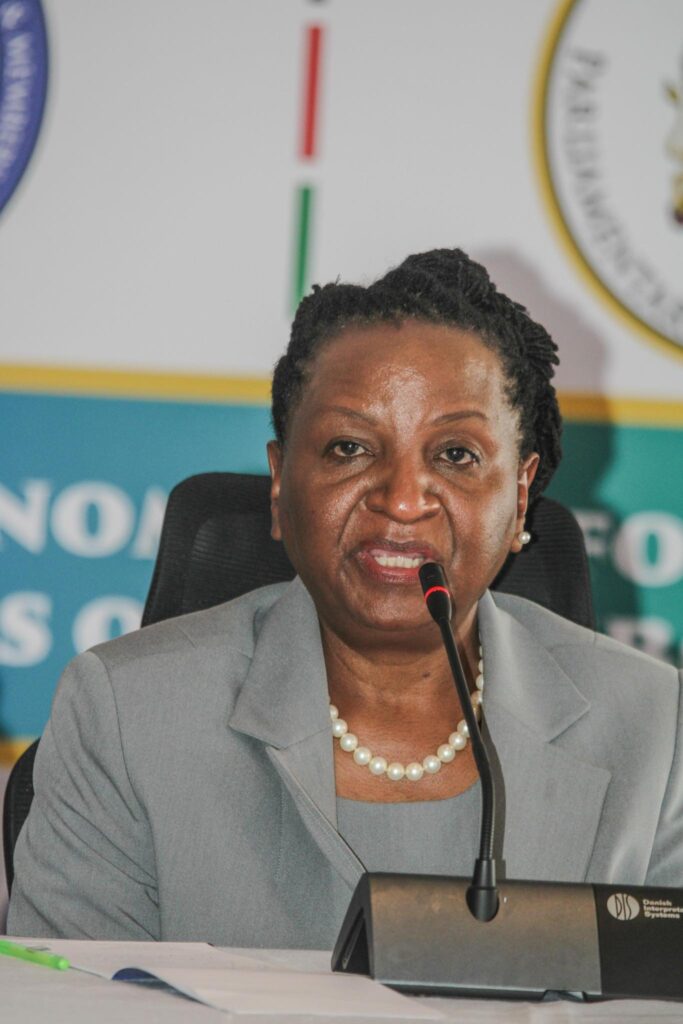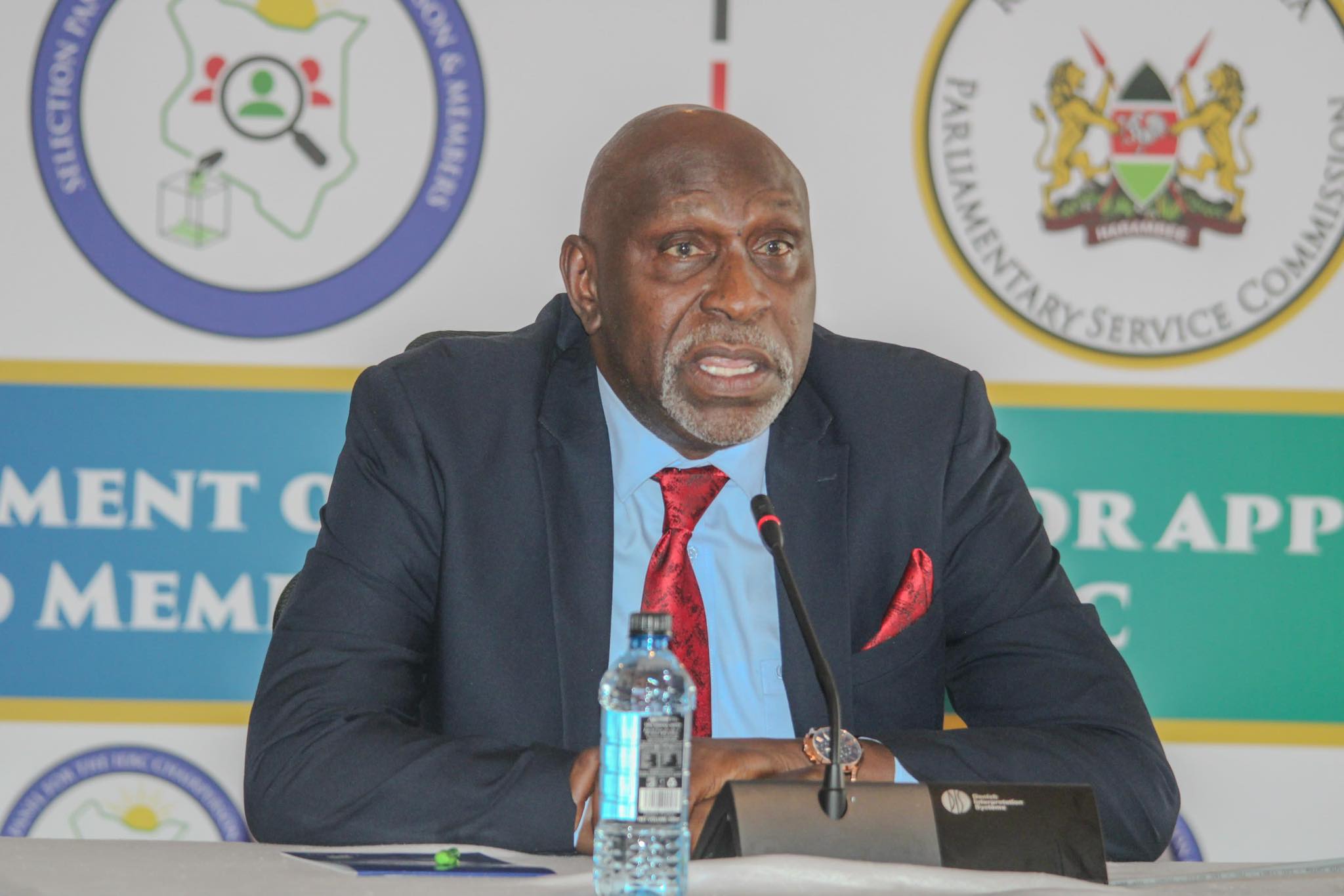The search for new leadership at the Independent Electoral and Boundaries Commission (IEBC) officially kicks off today, marking a crucial step in shaping the country’s electoral landscape. A selection panel has begun interviewing candidates for the role of chairperson and six commissioners, a process that will run until April 24. The goal is to fill the vacancies left by former chairperson Wafula Chebukati and commissioners Abdi Yakub Guliye and Boya Molu.
The interviews, being held at the College of Insurance in South C, Nairobi, are being overseen by a panel led by Dr. Nelson Makanda. So far, 11 candidates have been shortlisted for the chairperson position, while a staggering 105 individuals are vying for the six commissioner roles.

The Interview Process Begins
The first round of interviews features some well-known names. Among those appeared before the panel today are former Judiciary Registrar Anne Amadi, former Commission for the Implementation of the Constitution chairperson Charles Nyachae, lawyer Abdulqadir Lorot, and Edward Ngeywa.
Tomorrow, March 25, 2025, the panel will assess former Turkana County Attorney Edung Ethekon, former Deputy Chief Registrar of the Judiciary Kakai Kissinger, former Nairobi County Assembly Clerk Jacob Ngwele, and Kenya Power Board Chair Joy Brenda Mdivo.
The final round of interviews for the chairperson position will take place on March 26, 2025, with Lillian Wanjiku Manegene, Robert Akumu Asembo, and Saul Simiyu Wasilwa making their case for the top electoral job.
Once the selection of the chairperson is complete, the panel will turn its attention to the 105 commissioner candidates, who will undergo vetting until April 24, 2025. This process is critical, as the new team will be tasked with overseeing by-elections and preparing for the highly anticipated 2027 General Elections.
A Mandate to Rebuild Public Trust

Beyond just filling vacancies, the new IEBC leadership has a much bigger challenge ahead—restoring public confidence in Kenya’s electoral process. Recent years have seen widespread concerns over voter register integrity, election transparency, and allegations of political interference. Addressing these issues will be a top priority for the new leadership.
The electoral body plays a fundamental role in Kenya’s democracy, and its credibility is paramount. The new team must work to reassure citizens that the 2027 elections will be free, fair, and devoid of any irregularities. This includes tackling issues such as voter apathy, technological preparedness, and ensuring that all election procedures are conducted with the highest level of transparency.
Legal Battles Cast a Shadow on the Process
Even as the interviews get underway, legal battles threaten to disrupt the process. A petition filed by the lobby group Operation Linda Jamii seeks to block Charles Nyachae and Joy Brenda Mdivo from proceeding with the interviews, arguing that they currently hold public offices that may create conflicts of interest.
According to the petitioners, Nyachae, who serves as the chairperson of the Council of the Kenya School of Government, and Mdivo, the Kenya Power Board chair and head of the United Democratic Alliance (UDA) Electoral Disputes Resolution Committee, have not stepped down from their roles—something the Constitution prohibits for anyone seeking a position within the IEBC.
“The independence of the electoral body must be protected at all costs. Individuals with ties to state offices or political affiliations should not be allowed to take up roles within the IEBC,” the petition reads in part.
This case, currently before the High Court in Naivasha, has drawn significant attention from legal and civil society organizations, including the Law Society of Kenya (LSK) and Katiba Institute, both of which have been listed as interested parties. The petitioners are requesting a court order barring Nyachae and Mdivo from participating in the selection process until the matter is determined.
Adding to the pressure, the Kenya Youth Organisation has raised concerns over Nyachae’s suitability, citing his past professional engagements and questioning his impartiality in handling election-related matters. These legal and ethical concerns could significantly impact the selection process, raising questions about whether the appointments will truly reflect the spirit of fairness and transparency that the country so desperately needs.
IEBC Panel Stays the Course
Despite these legal battles, the IEBC Selection Panel has not publicly responded to the petitions and appears to be proceeding with the interviews as scheduled. However, the concerns raised could influence the final decision, as public scrutiny remains high.
As Kenya stands at this critical electoral crossroads, the selection of new IEBC officials carries significant implications. The individuals chosen will not only oversee future elections but will also be responsible for reinforcing public trust in the system. This is a make-or-break moment for the electoral body, and every step of the process is under intense scrutiny from both citizens and stakeholders.
What Lies Ahead?
Once the selection process concludes, the nominees will be subjected to further vetting by Parliament before their official appointment. This phase will allow lawmakers to assess whether the panel’s selections meet the integrity, competence, and impartiality standards expected of IEBC officials.
In the coming weeks, as candidates are scrutinized and legal battles unfold, Kenyans will be watching closely. The stakes couldn’t be higher. With the 2027 General Elections on the horizon, the decisions made now will shape the country’s political future.
For now, the nation awaits—watching, questioning, and hoping that this selection process delivers leaders who will uphold the principles of democracy and electoral integrity.https://shorturl.at/AJEfQ
Stay tuned for further updates as the process unfolds.https://touchdigitalnews.com/president-ruto-set-to-begin-mt-kenya-region-tour/
